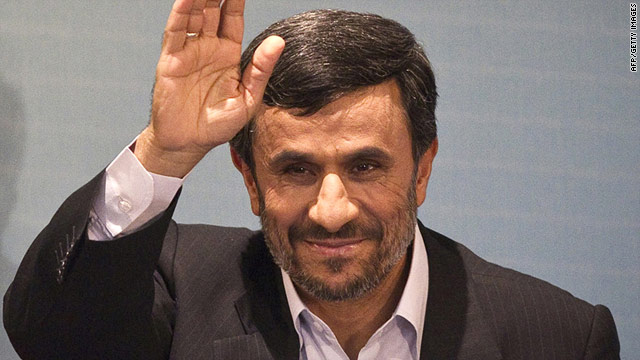Alassane Dramane Ouattara's long battle for the presidency of Ivory Coast has mirrored some of the problems the world's largest cocoa producer has faced over the past decade or so. 
- Nickname: Ado
- Age: 69
- Northerner, Muslim
- Economist and former prime minister
Ouattara's History
* 1968: Begins work at the International Monetary Fund
* 1983: Becomes vice-governor of the Central Bank of West African States
* 1990: Becomes Ivory Coast's prime minister under President Felix Houphouet-Boigny
* 1995: Barred from running as a presidential candidate
* 2000: Again barred from running because of disputes over his nationality
* 2010: Wins presidential run-off against Laurent Gbagbo, according to the UN
He was twice barred from running in presidential elections because he was regarded as a foreigner - as his mother was from neighbouring Burkina Faso.
He has a reputation as a hard-worker, keen on transparency and good governance.
But his rivals criticise him for being too Western, and say he backed the 2002 attempted coup d'etat - something he denies.
However, those rebels now form the bulk of his fighting forces.
Arguments over his nationality came to symbolise the marginalisation felt in the mainly Muslim north, where many migrants from neighbouring countries have settled since independence to work on cocoa farms and plantations.
Following the 2002 civil war, which split the country between the north and south, the constitution was amended to remove the stipulation that both a presidential candidate's parents be Ivorian.
This opened the way for Mr Ouattara to take on President Laurent Gbagbo in November 2010 - in polls the UN peacekeeping mission in the country says he won.
But Mr Gbagbo's supporters have reacted with outrage, after years of seeing Mr Ouattara demonised on state media as a foreigner and stooge of France, the former colonial power.
Soft-spoken economist
"Ado", as Mr Ouattara is known to his supporters because of his initials, did not start out as a career politician.
The 69 year old is an economist by training - studying in the United States - and has spent much of his career at the International Monetary Fund - where he rose to be deputy head - and the West African Central Bank.
When Ivory Coast's founding father Felix Houphouet-Boigny called him to help rescue Ivory Coast from economic stagnation, he was seen locally as an international technocrat.
He then had a brief taste of power when he served as prime minister between 1990 and 1993 under Mr Houphouet-Boigny.
After Mr Houphouet-Boigny died in 1993, Henri Konan Bedie succeeded to the presidency and played the nationalist card, exploiting Mr Ouattara's links to neighbouring Burkina Faso to sideline him from presidential contests.
Months of instability sparked by attempts to discredit Mr Ouattara culminated in Ivory Coast's first coup in December 1999, by General Robert Guei.
At first the coup appeared to be good news for Mr Ouattara, and several of his supporters assumed senior positions in the military government.
But it became clear that Gen Guei planned to run for the presidency himself and he began employing similar tactics to Mr Bedie.
Mr Ouattara was excluded from the December 2000 poll but Gen Guei's attempts to rig the outcome were defeated by massive street protests by supporters of Mr Gbagbo - then a veteran opposition leader.
Mr Ouattara may again have hoped that a change of regime would be good news for him but it was not to be.
Like his two predecessors, Mr Gbagbo found it useful to shore up his new position of power by using nationalism to attack his main rival, a Muslim with a French wife.

Xenophobic attacks on Burkinabes in Abidjan by supporters of Mr Gbagbo were a sign of things to come.
After the 2002 uprising, Mr Gbagbo portrayed himself as under attack from foreign powers.
Mr Gbagbo has followed similar tactics since December - and some had worried they might prove too nasty for the soft-spoken economist.
But from his blockaded hotel in Abidjan, where he has been since being declared presidential winner in December, he has squeezed Mr Gbagbo financially - cutting off his access to vital cocoa funds and international finance.
The banking system has all but collapsed and cocoa beans have been piled up in warehouses in the country's ports.
He did show a steely side - long calling for military action to oust Mr Gbagbo, before finally unleashing the former rebels, who backed him, from their northern strongholds to sweep down towards the seat of power in Abidjan.
With former rebel leader Guillaume Soro as his prime minister, Ado looks set to finally become Ivory Coast's leader after being thwarted for so many years.



